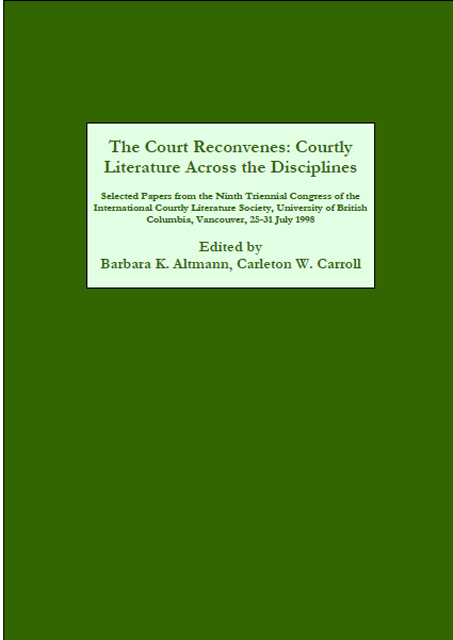 The Court Reconvenes
The Court Reconvenes Felony and Courtly Love
Published online by Cambridge University Press: 31 March 2023
Summary
In France and England of the eleventh, twelfth and thirteenth centuries, the feudal obligations imposed on two parties by the mutual contract of vassalage tended to be derived more from the oath of fealty than from the act of homage, and to be expressed in terms of abstention from action which might endanger the other party or harm his or her property. But as Bishop Fulbert of Chartres stated in his letter to William V, duke of Aquitaine, in 1020, it was also necessary for the vassal to do right, and for the lord also to do right to the vassal who had sworn fealty to him, or risk being accused of bad faith. Oaths recorded in charters from the eleventh century onwards attest to this seeming bar on felony. Felony applied to conduct which disrupted the feudal bond between dependent and lord; it was a breach of the oath of fidelity, incurring the rupture of friendly relations, the forfeiture of the lands and goods of the offender and, in some cases, the death penalty. It consisted of serious offences such as, on the part of the vassal, refusal to do military service, contravention of the rules of the lord's court, and giving bad advice to the lord. But the lord also had to avoid injuring the honour, property or life of his dependant and offering him bad advice. Over several centuries, felony came to mean a category of crimes which had little to do with feudalism proper, but which were considered more serious than misdemeanours and less serious than treason. But in the texts of the period studied here, the breach of fealty that felony represents supposes strong feelings of anger and hatred and acts of rebellion, aggression and violence. It is associated with treason.
The purpose of this paper is to explore the notion and expression of felony principally in the poetry of troubadours, but with reference also to narrative texts in French and Occitan. I shall consider the group of terms, their origin and meaning, and their occurrence in certain verbal structures and in certain contexts representing the relationship between poet-lover and lady.
- Type
- Chapter
- Information
- The Court ReconvenesCourtly Literature across the Disciplines: Selected Papers from the Ninth Triennial Congress of the International Courtly Literature Society, University of British Columbia, Vancouver, 25-31 July 1998, pp. 73 - 80Publisher: Boydell & BrewerPrint publication year: 2002
